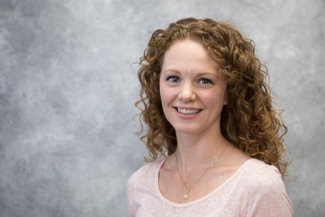More than a century ago, American naturalist John Muir observed that, "When one tugs at a single thing in nature, he finds it attached to the rest of the world.”
That’s a lesson NETL’s Natalie Pekney, Ph.D., learned as a child growing up on a farm in rural Pennsylvania, and it’s a lesson she carries with her when searching for potential gas well leaks in remote locations, or mentoring young people about careers in science, technology, engineering and mathematics (STEM) because problem solvers know all things are connected.
“I guess I’ve been a problem solver by nature as a result of my upbringing on a farm in Mercer County, Pennsylvania,” she explained. “Working on a farm gives you perspective. It’s where you can see the connections between how all things grow and develop. It’s what inspired me to seek a kind of career that explores those links.”
She built upon that appreciation of perspective and linkage to create a distinguished research career that has had regional and national impact. She has focused much of her career on finding ways to better monitor and understand the impact of oil and gas production.
Pekney prepared for a life in scientific research by first attending Case Western Reserve University where she earned a B.S. in civil engineering before moving on to Carnegie Mellon University where she earned an M.S. and Ph.D. in civil and environmental engineering. Along the way, she conducted research at NETL in post-masters and post-doctoral appointments under the Oak Ridge Institute for Science and Education program.
But, she credits her childhood on the farm for providing her the core knowledge that led to a life as a problem solver. She said she uses that problem-solving “all things connected” approach to study air quality and soil and water resource issues. Pekney works as the technical coordinator for the methane emissions quantification program at NETL. Under her leadership, the Lab:
- Created NETL’s trailer-based lab for ambient measurements of pollutants.
- Initiated successful monitoring projects at sites in Pennsylvania, West Virginia and Maryland.
- Designed approaches for measuring greenhouse gas emissions from natural gas production and transmission activities.
- Developed ways to measure methane emissions from abandoned oil and natural gas wells and natural gas compressor stations.
“We go out to areas that were the sites of oil and gas production in the past,” she explained. “Then, we undertake measuring missions at those sites. It’s an exciting part of my job because it means I’m not always sitting at a computer or desk. Getting out to collect real data on how gas wells affect air quality takes me hiking forgotten places and being close to nature.”
Finding abandoned wells that leak methane (CH4) is a priority for Pekney and her team because CH4 is more efficient at trapping radiation in the atmosphere than carbon dioxide (CO2) meaning that “pound-for-pound,” the impact of CH4 is greater than CO2 as a greenhouse gas. Many early wells drilled in the United States were not properly sealed when they were abandoned, creating pathways for liquids and gases to rise to the surface or flow underground. Poorly sealed wells can contaminate sources of drinking water, release harmful gases and threaten the success of subsurface energy-related activities — including carbon storage. Leaking pipelines may also pose some of these threats, so as NETL has refined effective well-finding techniques, research has transitioned to locating gathering lines and characterizing any leakage from those lines.
Pekney’s leadership abilities, technical expertise, and talent for innovation has led to the creation of a collection of leading-edge facilities and protocols that allow effective monitoring and study of emissions at old and developing well sites so that appropriate environmental protection activities can be pursued.
Always searching for connections, Pekney works to identify knowledge gaps in current research and then expand the fugitive methane emissions monitoring program to fill those gaps. The value and importance of her work investigating methane emissions from often overlooked sources like pipelines and abandoned wells has been acclaimed by a variety of local, state and federal agencies and organizations.
Her work doesn’t end in the field or in the lab. She has also mentored undergraduate and graduate students from universities to encourage their pursuit of environmental studies and research. She often takes advantage of opportunities to encourage young people to pursue careers in STEM.
“It’s important to have mentors when you pursue a stem career because in a lot of scientific fields, you simply don’t work alone,” she explained “You learn off of what others have done. I remember that in one of my fourth grade textbooks, there was a description of what scientists do. I always thought it would be cool to be one of them. What I learned is that it’s not that hard to be a scientist if that’s what you want to do as long as you master tools you need like math and sciences. I’m happy to take that message to whomever will listen.”
Pekney’s career, documented through an impressive set of peer-reviewed papers and published conference proceedings, has been recognized throughout the United States and Canada and she is often invited to speak and present at conferences. Her research has provided valuable data to decision makers in the public and private sectors and she shares her knowledge to inspire the next generation of researchers.
Chief Seattle, of the Suquamish and Duwamish Native American Tribes said in the 1860s, “We did not weave the web of life. We are merely a strand in it. Whatever we do to the web, we do to ourselves.” Pekney pursues an aggressive agenda of research alongside her NETL colleagues to understand the impacts of energy production on the “web of life” by building upon the lessons learned on a Pennsylvania farm.




